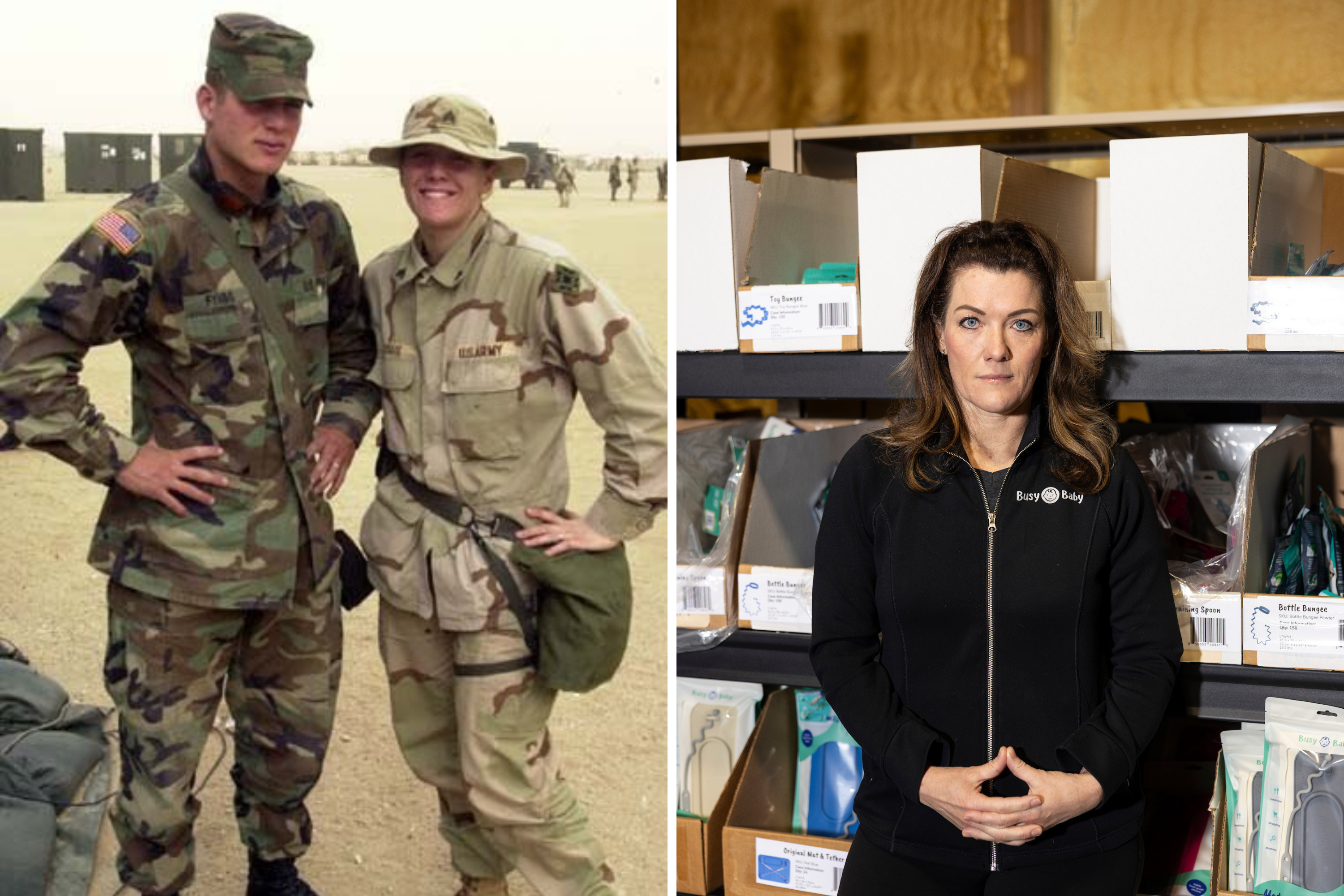Tariffs and Small Business: The Struggles of an American Entrepreneur
Amid ongoing economic shifts, the impact of President Donald Trump’s tariffs on China is being felt in various corners of the American business landscape, particularly among small businesses. One vivid example comes from Beth Benike, a U.S. Army veteran and founder of Busy Baby LLC, who describes these tariffs as an "existential threat" to her company and warns of their far-reaching implications for America’s small business community.
The Busy Baby Journey
Founded in 2017 with her brother Eric, Busy Baby LLC was born out of a desire to provide practical solutions for parents of active toddlers. With its flagship product—a suction cup placemat designed for "busy babies"—the company has expanded to include a variety of offerings, from travel bibs to teething spoons. This growth has led to millions in annual revenue, demonstrating the potential for success in the small business sector.
Tariffs: An Unwelcome Reality
Initially, when the tariffs were proposed, Benike believed her business could absorb the increased costs without much issue. However, as the tariff rates climbed—from 10 percent to a staggering 145 percent—her optimism quickly dwindled. This dramatic increase has left Benike unable to import essential products from her manufacturer, crippling the operational heartbeat of her business.
Benike articulated her plight to Newsweek, sharing that she currently has $158,000 worth of paid-for inventory stranded in China and asserts that her company has only enough stock in the U.S. to last another three months. Facing this precarious situation, she launched a GoFundMe campaign to help raise $229,100 just to cover the new import taxes.
The Ripple Effect on Small Business Ecosystem
The potential downfall of Busy Baby does not only threaten Benike and her brother; it could unleash a “massive ripple effect” impacting other small businesses as well. Reflecting on her network, Benike noted that they rely on numerous services, including bookkeeping and marketing. If Busy Baby must close its doors, these supportive businesses will also face financial strain.
This interconnected nature of small businesses illustrates an essential aspect of today’s economy; the failure of one can lead to a chain reaction affecting many. Benike emphasizes, “If I go out of business, every single one of those businesses now loses that money that they were counting on from my business every month.”
Challenges of Reshoring Manufacturing
One potential solution often discussed in relation to tariffs is reshoring manufacturing to avoid the hefty import duties. However, for Benike, this is not a viable option. After exhausting her initial optimism, she has determined that relocating manufacturing would result in unsustainable price increases that customers simply aren’t willing to pay.
“The infrastructure and specialized manufacturing capabilities that China offers are hard to replicate in the U.S.,” Benike explains. China’s expertise, honed over decades in the export-heavy economy, creates efficiencies that are not easily matched by American counterparts.
Small Business and Tariff Exemptions
Benike believes that small businesses should receive exemptions from tariffs similar to those granted to larger corporations. She cites the recent reprieve given to the tech industry as an inequitable advantage that highlights the disparity between small and large businesses.
“If the mission is to bring manufacturing back to the U.S., small businesses like mine aren’t going to be the ones to do it,” she comments. “It’s going to be the big businesses that have the pocketbooks and the volume of sales.”
This sentiment has found support in government circles, with Representative Kelly Morrison reaching out to Commerce Secretary Howard Lutnick, advocating that small businesses be spared from the harsh impacts of the sweeping tariff policy. Similarly, the U.S. Chamber of Commerce has called for an exemption, highlighting the dangers that the current tariff environment poses to the fabric of small business in America.
The Response from Washington
While senior officials have acknowledged the economic concerns, they often frame the conversation around tax cuts rather than specific relief for small businesses impacted by tariffs. Benike expresses frustration that the proposed solutions do not effectively address the immediate challenges faced by small business owners like herself.
“There’s a simple solution—customs authorities could easily implement an exemption by verifying an importer’s small business registration,” she suggests, yet she observes a disappointing level of support from the Small Business Administration (SBA).
Despite these hurdles, Benike plans to travel to Washington, D.C., to accept an award for Minnesota Small Business Person of the Year, using the opportunity to advocate for her fellow small business owners and bring her concerns directly to lawmakers.
The Takeaway
The narrative of Beth Benike and Busy Baby LLC encapsulates the broader struggle faced by American small businesses in an increasingly challenging economic climate. Whether confronted by rising tariffs or seeking relief, the very foundation of these small enterprises hangs in the balance, intertwined with the fate of countless others in the business ecosystem.


